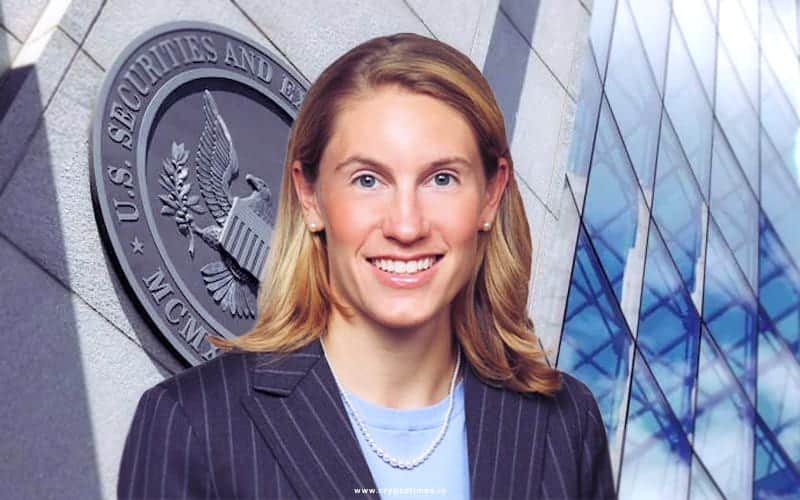In Brief:
- Caroline Crenshaw said that ‘Safe harbor’ legislation would have worsened ICO issues.
- Lack of bipartisan support is unlikely to consider such a proposal.
- Instead of Safe Harbor, Crenshaw hopes to build a bridge.
The US SEC Commissioner Caroline Crenshaw pushed back against calls for a safe harbor that would shield initial coin offerings (ICOs) from the SEC’s full reporting regime at an SEC event on October 12th.
“Instead of a harbor, my hope is that we can build a bridge,” Crenshaw said, as more crypto industry players approached the SEC’s door. She believes that “ Safe Harbor” would do more harm to the crypto participants than helping them. By creating a bridge firms can work with the SEC to determine new laws that can be beneficial to everyone.
Crenshaw stated, “had a safe harbor been in place during the Initial Coin Offering or ICO boom of 2017 and 2018, I think the results would have been even worse for investors and the markets. ICOs and other digital asset offerings raised billions from investors, but most never delivered on their promises.”
During Commissioner Hester Peirce’s tenure at the SEC, a safe harbor for token offerings was a signature proposal, even appearing in recent legislation from Representative Patrick McHenry that seeks to make the decision into statute, which, if passed into law, overrides SEC rulemaking.
Crenshaw joined the SEC in 2020. This makes her the newest member of the commission’s leadership team, aside from Chairman Gary Gensler, who has notably pushed more of the crypto industry to register with the SEC since his confirmation in April.
During Commissioner Hester Peirce’s tenure at the SEC, a safe harbor for token offerings was a signature proposal, even appearing in recent legislation from Representative Patrick McHenry that seeks to make the decision into statute, which, if passed into law, overrides SEC rulemaking.
People’s support for such a safe harbor is sharply divided along partisan lines. Peirce and McHenry are Republicans, while Gensler and Crenshaw are Democrats.
Given the lack of bipartisan support, the current Congress and administration are unlikely to consider such a proposal. Crenshaw and Gensler agreed that more cryptocurrency projects should register with the SEC.






